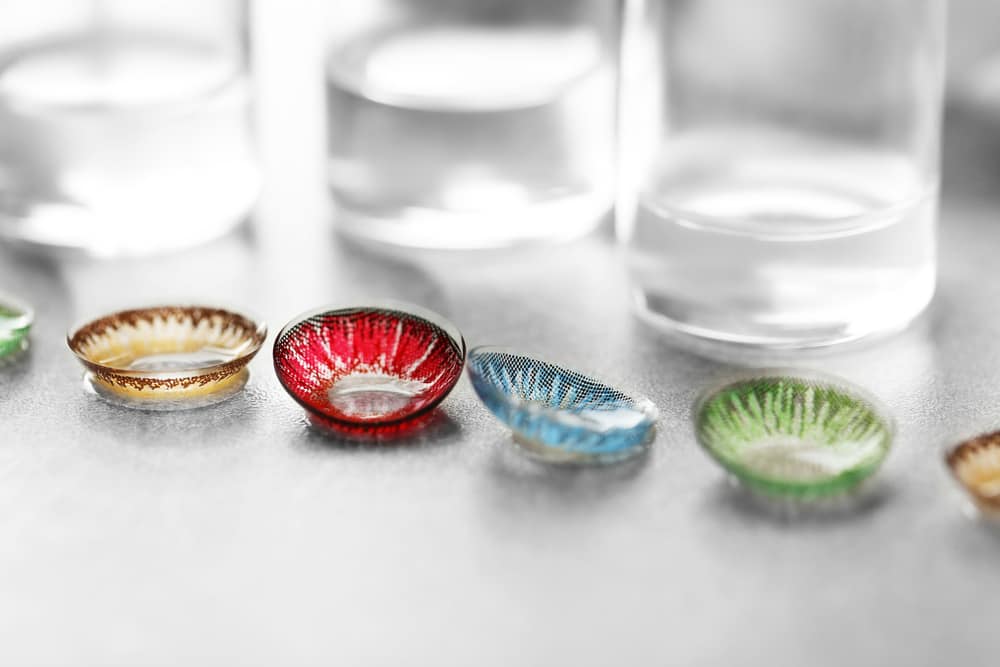Contents:
- Medical Video: Hard vs. soft contacts | which is better?
- What is a soft lens?
- What is a hard lens?
- Which lens contacts are better for the eyes?
- Soft lens
- Hard lens
- Whatever lens you use, remember to always take good care of it
Medical Video: Hard vs. soft contacts | which is better?
If you have chosen the option to use contact lenses instead of glasses, the next step is to choose the type of lens that suits you. There are two types contact lense which is now available on the market, namely soft contact lenses and hard contact lenses. Of course before stabilizing to buy, you must first know what is the difference between a soft lens and a hard lens. Here are the advantages and disadvantages of each type of lens that you need to know.
What is a soft lens?
Lens orsoft contact lensesis a type of soft contact lens, made of soft and flexible plastic that allows oxygen to easily penetrate the cornea. The newer soft lens material is usually made of silicone-hydrogel, which allows more oxygen to enter the eye as long as you use the lens.
Soft lenses include extended eye-wear contact lens types. That is, this lens can be worn continuously for a specified usage period (for example 7 days to 30 days) and then discarded. However, the continuous usage period will depend on the type of lens and the evaluation of the doctor during routine eye checks.
There are two types of loft lenses. "Disposable" or one-time use, which means the lens must be used only once and then discarded and replaced the new one for the next use. There are also those with recipes so they can be used for a full day. This type of lens can also be used overnight, but must be replaced with a new pair every day.
What is a hard lens?
Hard lenses or rigid gas permeable contact lenses (RGPs) are a type of contact lens that is harder and stiffer than a soft lens, but can still let oxygen enter the eye. Generally, hard lenses provide a clearer and sharper vision than soft contact lenses.
In addition, hard lenses tend to require less maintenance costs because the duration of use is more durable than soft lenses and more resistant to the buildup of dirt deposits. Therefore, the schedule for replacing this "hard" lens will be longer than the soft lens.
Which lens contacts are better for the eyes?
Before you decide which one to buy, first consider the advantages and disadvantages of each of these types of lenses:
soft lens
The advantages of using soft lenses
- More comfortable when used, especially for first time use.
- The adaptation period is shorter for new users of contact lenses.
- Ideal for intermittent or detachable use.
- Less sensitive to foreign objects under the lens, such as dust.
- It is rarely released from the eyes so it is more ideal to use when exercising.
- Available in various colors.
Lack of using soft lenses
- Less durable than hard contact lenses.
- Can dry, especially when wearing hair dryer, in a room that is hot or windy and dry, which causes discomfort for some people.
- More lens care is needed.
- Susceptible to protein or fat deposits, which will reduce lens performance in the long run.
- Can absorb chemicals from the environment, which can cause eye irritation.
Hard lens
The advantages of using a hard lens
- Can correct astigmatism of the cornea or cylindrical eye.
- Very durable.
- Easier care.
- Easy to use.
- Does not cause dry eyes.
- Can maintain its shape.
- Available in bifocal and multifocal.
- Available in various colors.
Lack of using a hard lens
- Not comfortable at the beginning of use.
- The adaptation period takes longer.
- More sensitive to foreign objects under the lens, such as dust.
- It's easier to get out of the eye
- The lens can be scratched and broken.
- Usage cannot be removed.
Once you know the advantages and disadvantages of each lens, you can determine what type of contact lens you will choose and it will be better if you decide with the ophthalmologist before you start wearing contact lenses.
Whatever lens you use, remember to always take good care of it
- Compared to glasses, contact lenses require a longer initial eye examination and more visits follow-up to maintain eye health.
- You need to take care of your contact lenses by cleaning them regularly and storing them properly.
- Note the expiration date of contact lenses is also important. You must follow a schedule to dispose of your used contact lenses.
- Each time you remove the lens after use, make sure to clean and sterilize it properly before reinstalling it.
- It is also important to rest the eyes by removing contact at least one night before the scheduled change of the new lens.












